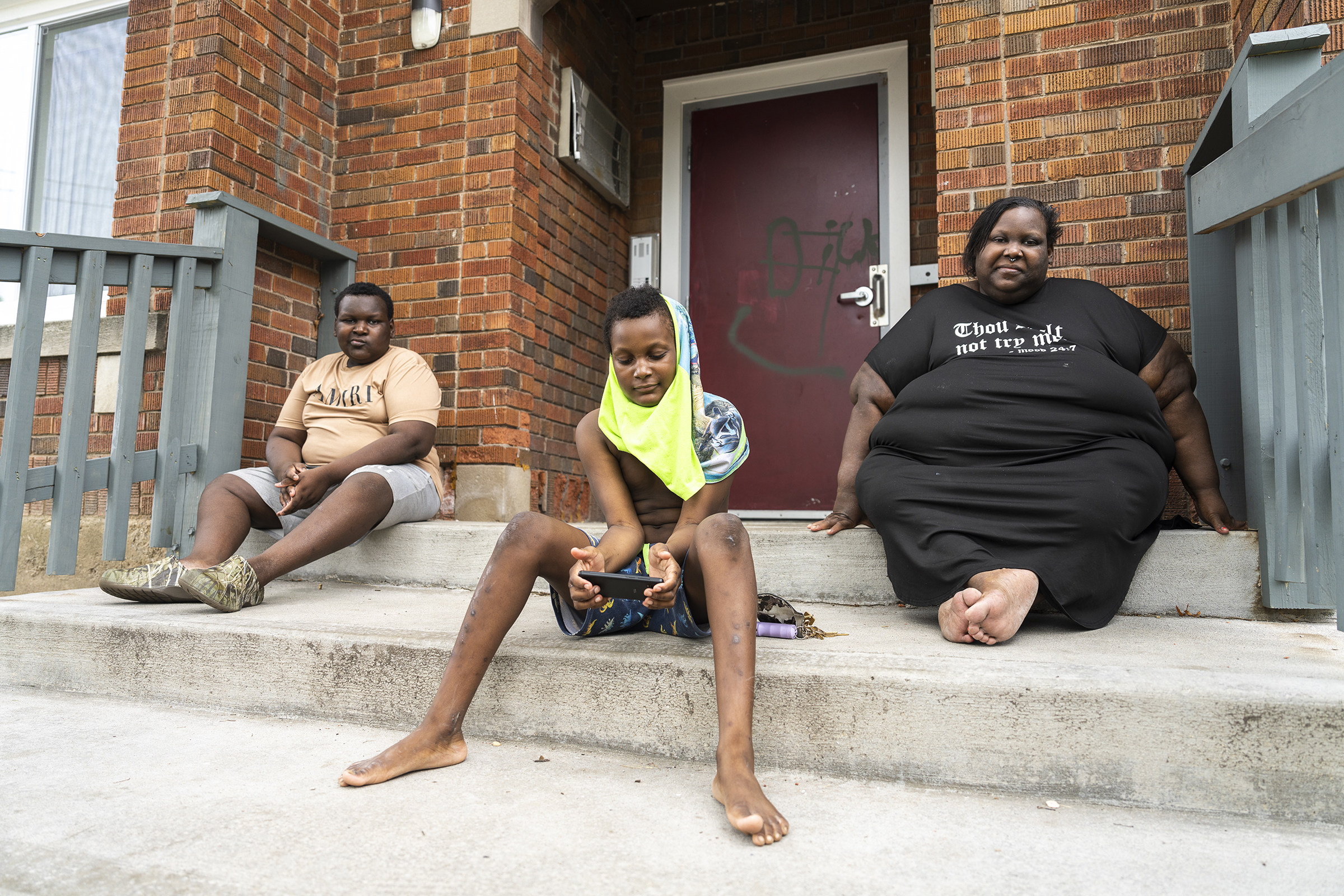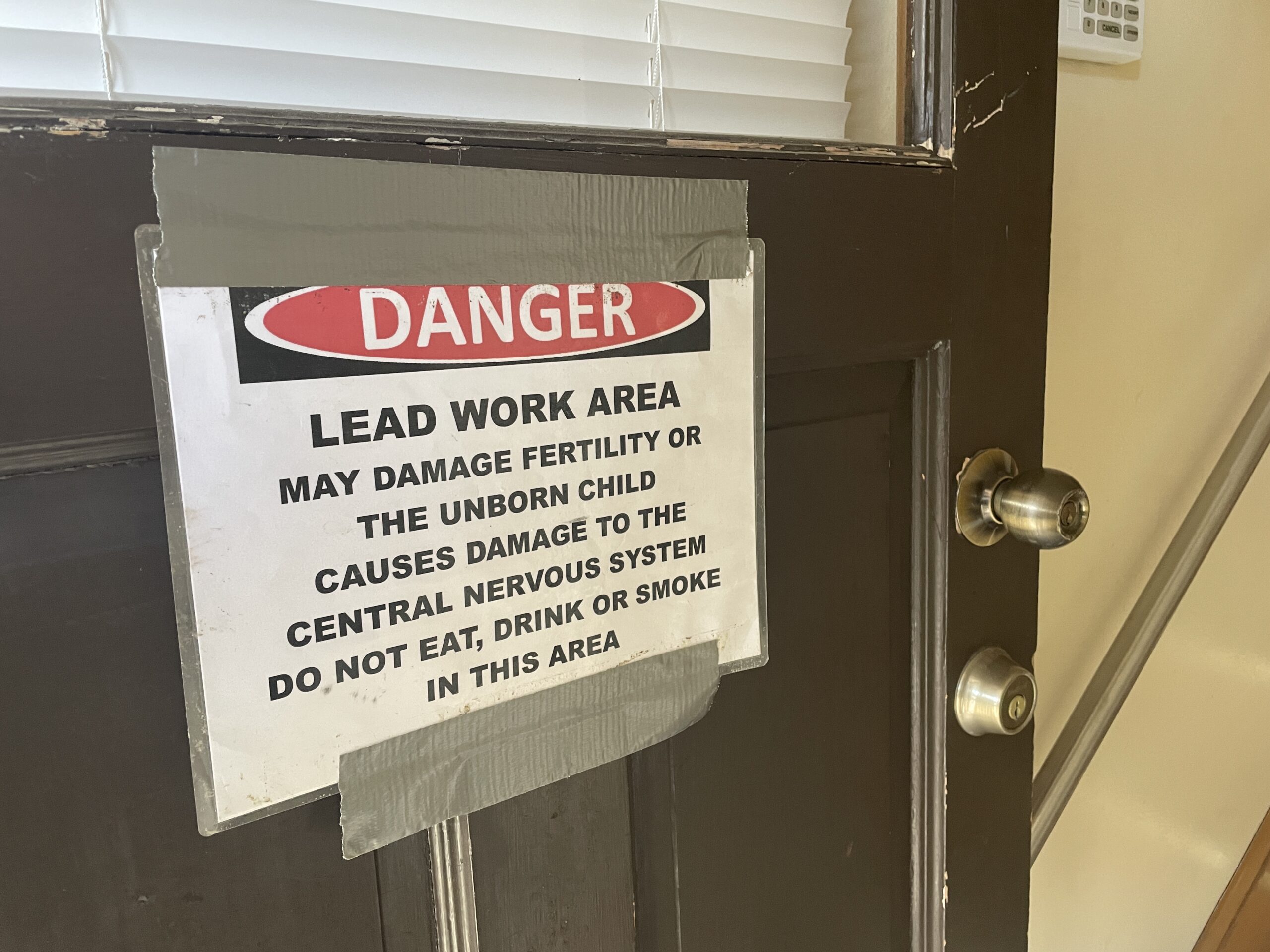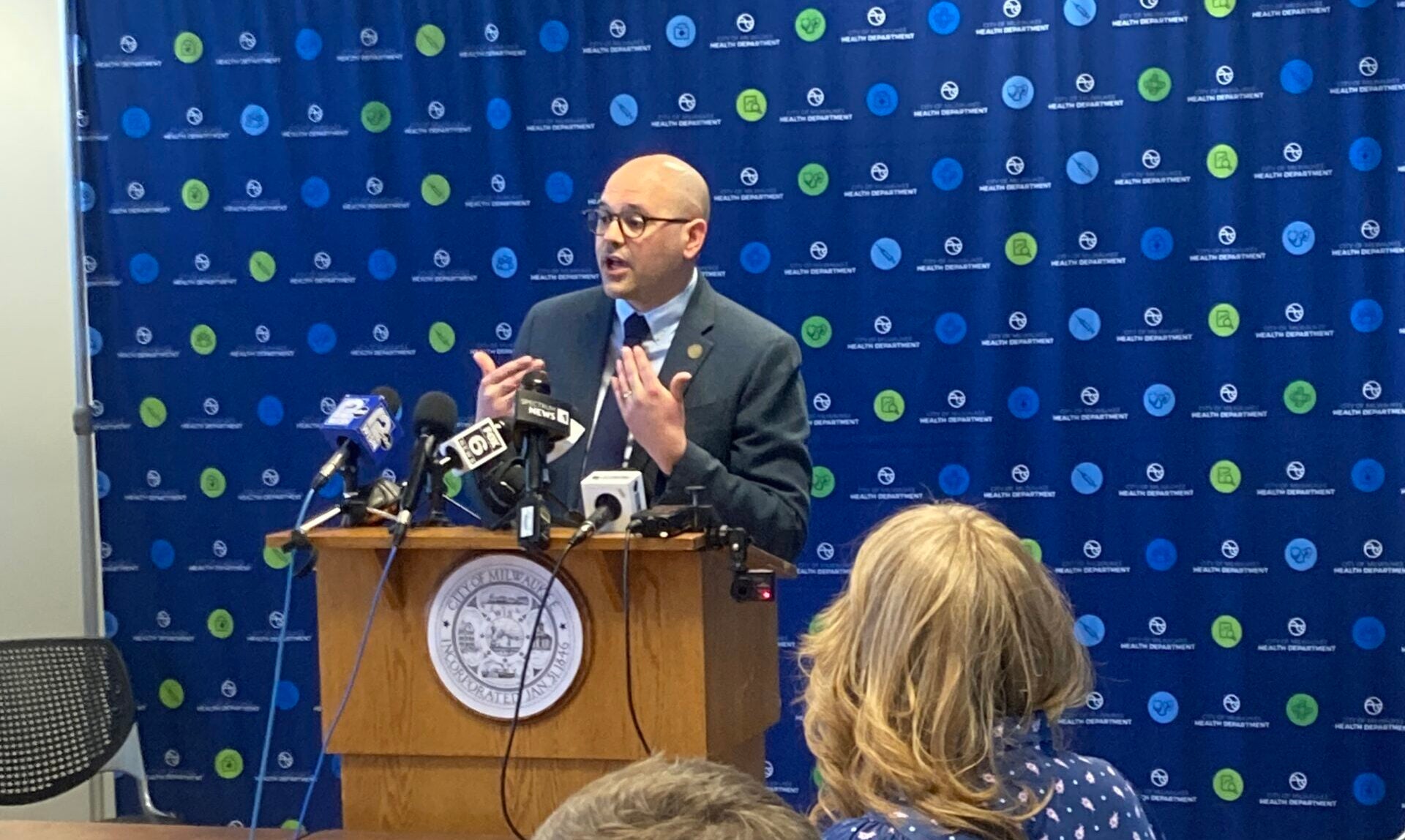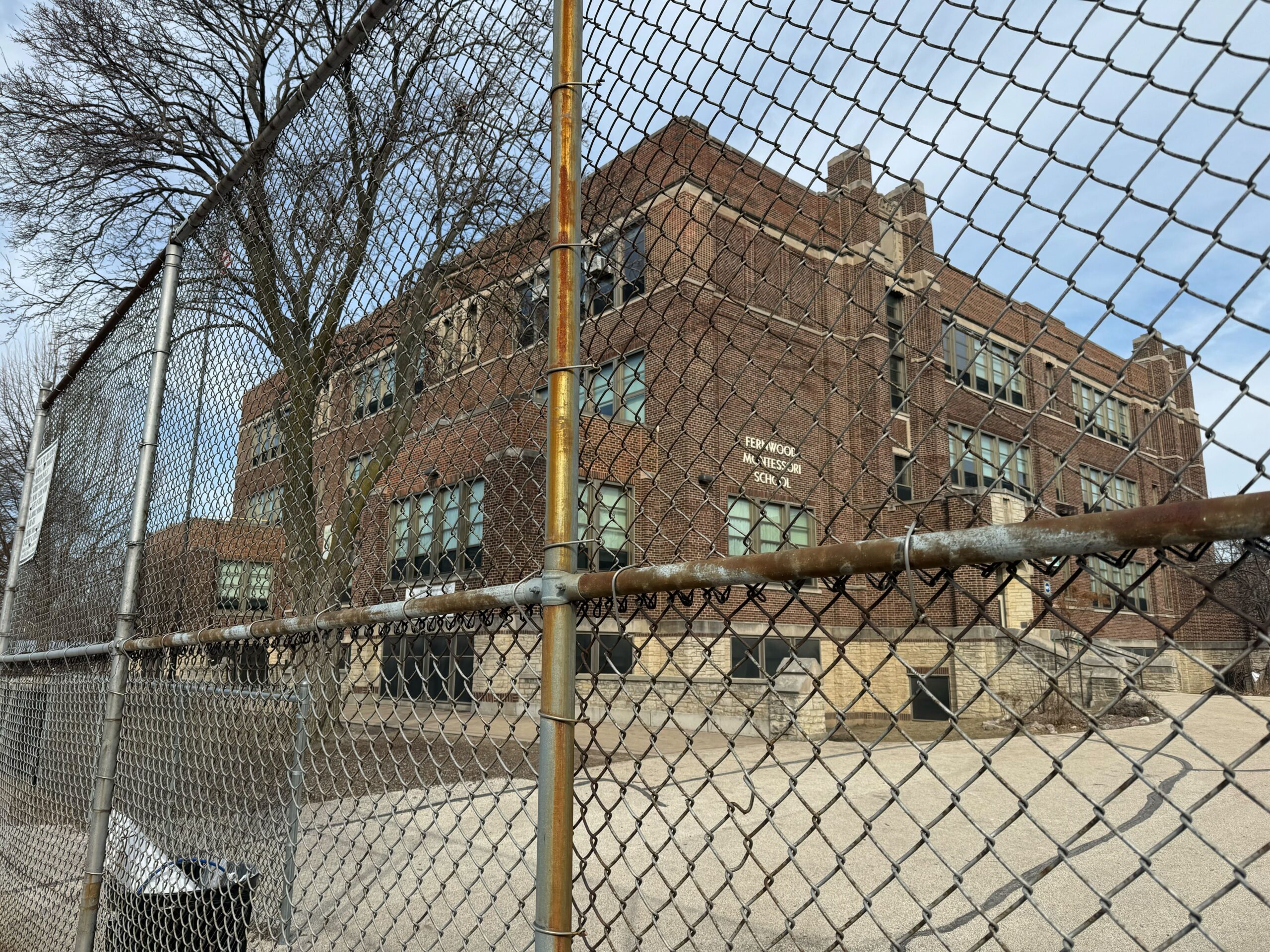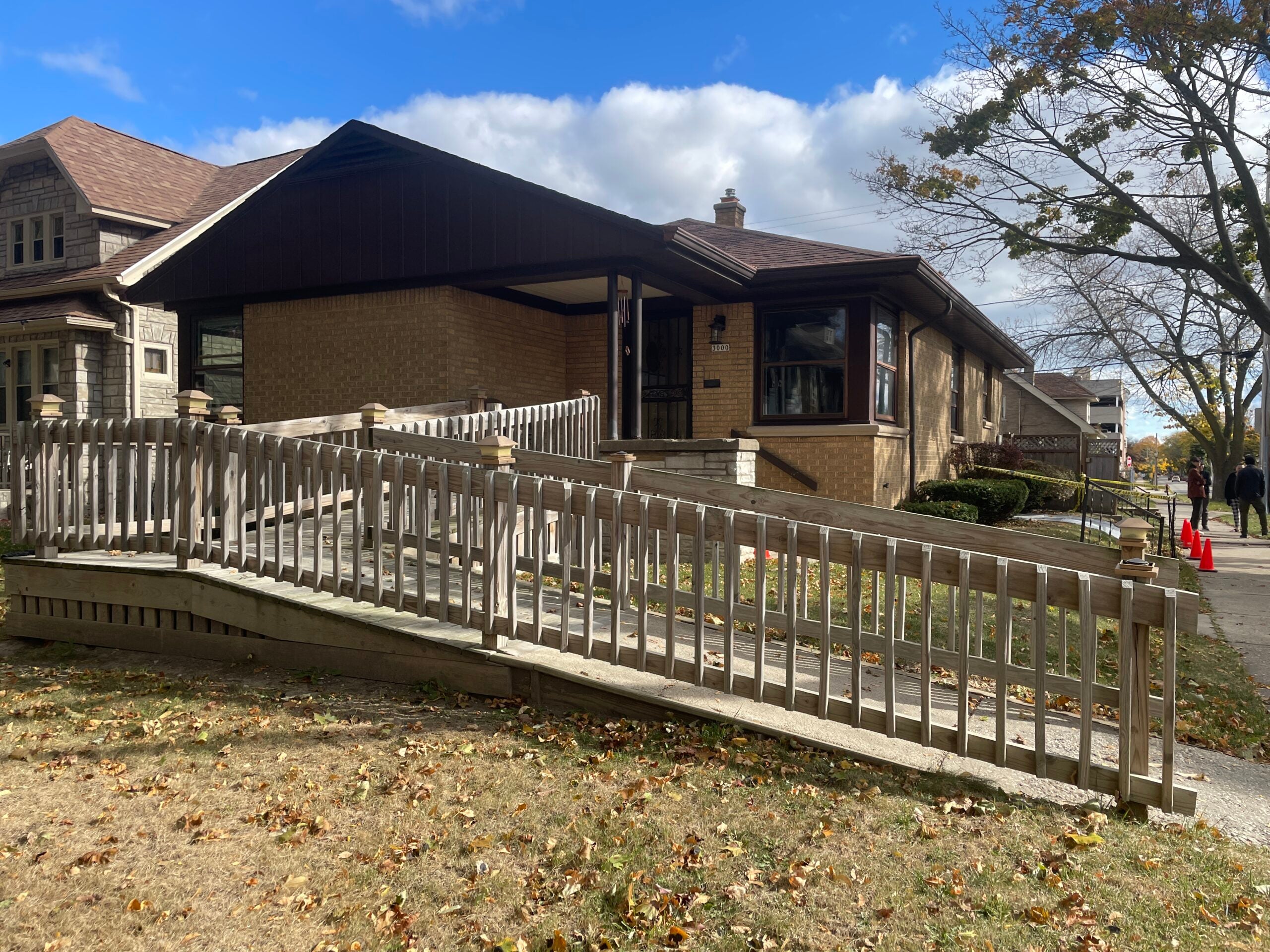Deanna Branch thought she found the perfect two-story home to rent on Milwaukee’s North Side.
Perfect until severe lead poisoning in 2015 sent Branch’s then-2-year-old son Aidan to the hospital.
Her landlord didn’t fully address the home’s lead hazards. After Aidan returned to the hospital three years later, state Child Protective Services said Aidan couldn’t leave unless she provided a lead-free home, she recalled.
News with a little more humanity
WPR’s “Wisconsin Today” newsletter keeps you connected to the state you love without feeling overwhelmed. No paywall. No agenda. No corporate filter.
Branch broke her lease and moved in with family and later lived at a shelter.
Her rental company management, Ogden and Company, Inc., sued her and garnished her mother’s wages for years, since she had co-signed on the lease, she said.
“I broke my lease, but you almost killed my son,” Branch said of her landlord. “So I figured we will be a little bit even.”
Branch has since found a safe home and become an advocate for parents facing lead hazards, even spotlighting the issue while meeting President Joe Biden.
But her experience remains common in Milwaukee. More than half of city households rent — the highest percentage in the Midwest — and an estimated 200,000 aging housing units likely have paint made with lead, a neurotoxin that damages the brain and nervous system, especially in young children.
Homeowners can make their properties safer by removing lead paint, dust or water pipelines. But renters rely on landlords to take action. Landlords see few incentives to renovate on their own, and Milwaukee regulators — limited by budgets and state law — provide little oversight.
That reality reinforces deep racial and socioeconomic disparities in one of the nation’s most segregated cities.
Tenants may risk retaliation if they complain about unaddressed lead hazards, said Richard Diaz, a co-founder of the Milwaukee-based Coalition on Lead Emergency.
“You hear the same story, just time and time again,” Diaz said. “Kids lead poisoned, landlord doesn’t care, they get evicted.”

Little impact from year-old ordinance
The Milwaukee Common Council sought to tackle this problem in July 2022, enacting an ordinance designed to prevent landlord retaliation and stiffen penalties for refusal to address detected lead. That included allowing the Milwaukee Department of Neighborhood Services, or DNS, to allow tenants to withhold rent when landlords fail to comply.
But DNS received zero rent-withholding referrals during the ordinance’s first year, a spokesperson said.
DNS can refer lead-related complaints to the city health department for enforcement, but the agency says few complaints specifically mention lead. DNS often receives complaints about peeling paint, a common sign of lead hazards. But it has authority only over building codes and not health codes that deal with lead hazards. So if a child isn’t yet found to be poisoned, DNS simply orders landlords to repaint without abating lead.
That risks further contaminating properties if a contractor scrapes away old paint without proper cleanup.
The city health department issued just 26 citations to 13 companies or individual landlords for unaddressed lead problems from July 2022 to June 2023, with nine citations against four entities later dropped due to out-of-date inspections, public records show.
Four entities were deemed guilty of eight citations after failing to show up in court — with each citation carrying an $801 fine. Three entities had six citations dismissed because they responded and received funding for abatement. Two citations against a company were returned as undeliverable.
Landlords sometimes refuse inspectors entry for fear they will find other code violations, said Michael Mannan, the city health department’s director of home environmental health.
“We know it’s not working,” Mannan said about broad city efforts to rid rentals of lead. “We have to do something.”
Not all landlords are the same, and some struggle to afford the average $40,000-per-unit cost of abatement.
Most try hard to keep up with costly repairs and maintenance, said Chris Mokler, director of legislative affairs for the Wisconsin Real Estate Investors Association.
“They don’t want any children infected. But again, they didn’t paint the property,” he said, arguing regulators should focus more on incentives.
The state’s Lead-Safe Homes program covers 100 percent of abatement costs to landlords, according to the Wisconsin Department of Health Services. It has completed lead abatement in 332 homes statewide — 119 rentals and 213 occupied by owners — since its 2020 launch.

Blood test detects lead poisoning
Like many parents, Branch didn’t learn about lead risks until a test showed her child was poisoned.
Federal law requires landlords to inform tenants about lead paint in properties built before 1978, but Branch doesn’t recall receiving such information.
A test through the state’s Women, Infants, and Children, or WIC, program showed about 40 micrograms of lead per deciliter in Aidan’s blood, Branch said. That was eight times the level the state defines as poisoning: 5 mcg/dL.
Living in an aging North Side Milwaukee rental, Aidan was among Wisconsinites most likely to face lead exposure. In 2022, Wisconsin’s Black children were four times more likely than white children to face lead poisoning, data shows.
Childhood lead poisoning rates in Milwaukee and statewide have dipped in recent decades — in line with national trends since lead was phased out in paint and gasoline. But hazards still persist.
The majority of Wisconsin’s lead-poisoned young children live in Milwaukee County, where 4.7 percent of children under six tested in 2021 had blood lead levels above 5 mcg/dL. That’s compared to 2.8 percent of the young children tested statewide, state data shows.
Testing data from 2018 to 2021 shows childhood lead poisoning in some North Side Milwaukee census tracts ranging above 15 percent or even 20 percent.
Aidan’s initial level was high enough to send him to the hospital, and it seemed to explain his early behavioral issues.
The test detected lead at twice the threshold for the city health department to require the landlord to fix the hazard (15 mcg/dL), with the city covering the costs.
Branch’s landlord replaced the home’s window, but that didn’t stop Aidan’s exposure.
A 2018 health department test of the home found lead in deteriorating plaster and wood in the bedrooms, pantry, hallway and front porch.
Another blood test detected 50 mcg/dL in Aidan’s blood, sending him back to the hospital. That’s when CPS told Branch that Aidan couldn’t be discharged without a lead-free home, Branch said.
“I thought: ‘Oh my God. I’m going to lose my kids. I’m a terrible mother,’” Branch recalled. “The people who were supposed to be helping me provide a safe place for my son — it felt like they were against me. They were blaming me.”
Medical professionals say it’s critical to immediately remove children from lead sources. But the waitlist for abatement is about a year long, Mannan said.
Branch said her landlord promised to fix all the lead hazards once she re-upped her lease for another year. She refused and broke her lease early — especially scared after CPS’ warning.
The move prompted Ogden and Company to sue, damaging Branch’s credit and siphoning her mother’s wages until the debt was paid. Branch said she didn’t learn of the lawsuit until landlords elsewhere denied her rental applications.
The family this year successfully petitioned the court to seal records from the lawsuit.
An Ogden and Company spokesperson declined to comment on the litigation and wrote in an email: “In most cases, we are a third party management firm for an ownership entity that we neither own nor control.”
Branch initially turned to extended family for housing and later moved into a shelter when she “became a burden to live with,” she said.
With funding scarce, the city health department offers few home relocation resources other than making referrals to other agencies. The home must be condemned for renters with written orders from DNS to receive such support. That might include 30 days of rent assistance from Community Advocates, a social services nonprofit, Mannan said.
The city health department is taking a new approach with landlords. It ended a process in which a landlord would automatically qualify for a taxpayer-funded abatement when a child was found to be poisoned — and would be cited only when refusing to hire a contractor. However, low-income property owners can still receive subsidized abatement.
Under the new process, the city will charge reinspection fees to unresponsive landlords as the first step in an escalated enforcement strategy. If a landlord doesn’t abate after two warnings, the city can continue reinspection fees at $350, issue citations, or ask a judge to allow the department to perform the work and add costs to the landlord’s building taxes.
Republican-enacted state law restricts rental inspections
Still, those actions come only after a child is found to be poisoned. Renter advocates want the city to proactively investigate lead and other hazards.
Rochester, New York, and Cleveland, Ohio, require inspections for lead hazards before tenants move in. Advocates say those ordinances could help curb childhood lead poisoning.
That’s not possible in Milwaukee due to the state law capping inspection fees, Mannan said. With so many suspect properties, the city could not afford proactive inspections without raising fees on landlords.
Wisconsin’s Republican-controlled Legislature under former Gov. Scott Walker capped fees as part of a series of laws that limited renter protections.
The Wisconsin cities of Eau Claire, Racine and Oshkosh require rental inspections for certain building hazards, using careful wording to comply with the state’s narrowed law. State law allows targeted rental inspections to address “habitability” violations that pose a “substantial hazard to the health or safety of the tenant.” Cities can define that to include lead.
DNS Commissioner Erica Roberts acknowledged that Milwaukee could legally target lead similarly, but said the city lacks funding to do so.
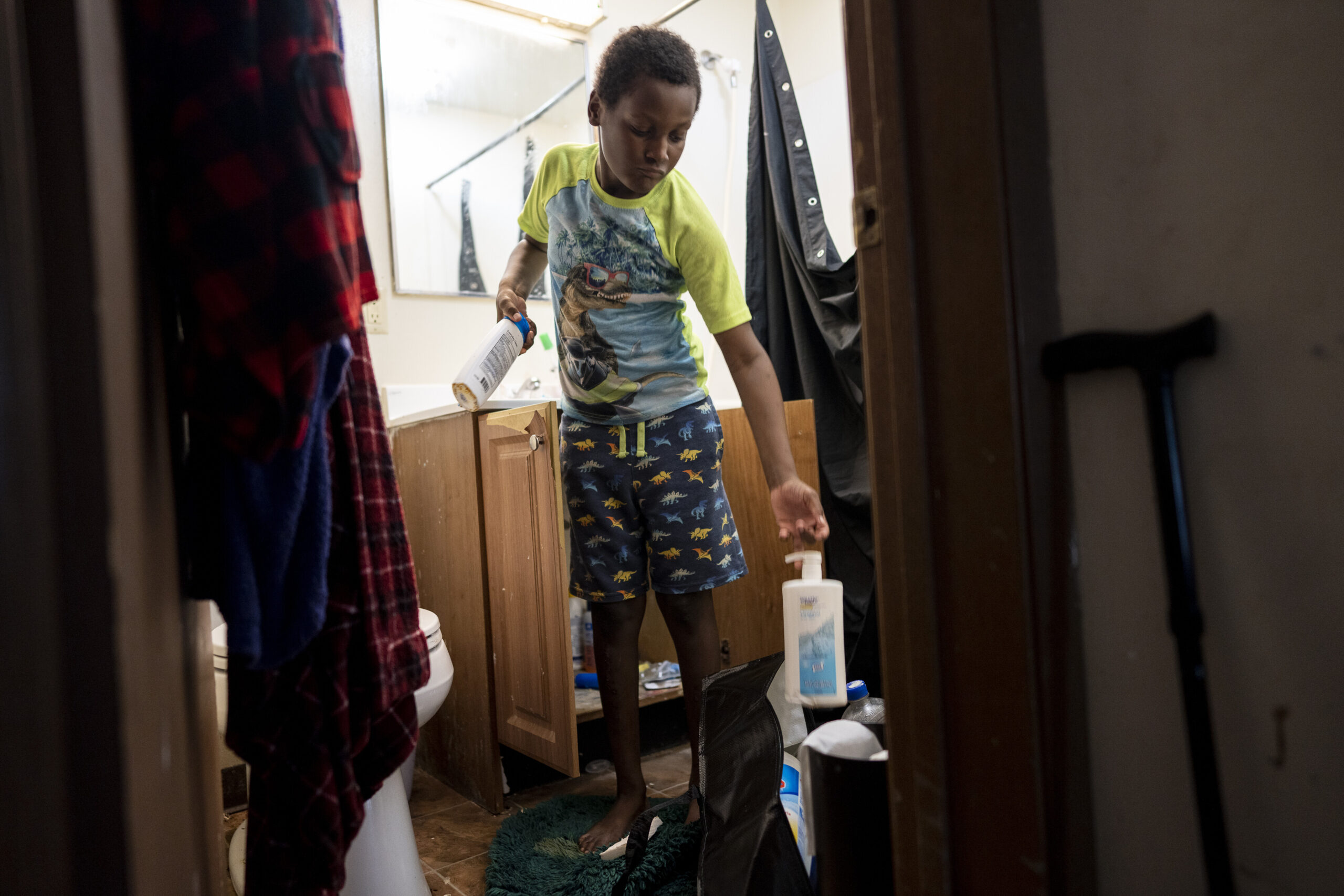
Home now lead-free, but challenges linger
Branch’s family now lives in a lead-free rental. Aidan, now 10, still faces challenges that Branch suspects relate to early lead exposure. He has an attention-deficit hyperactivity disorder diagnosis, and he can turn angry and argumentative — symptoms of his diagnosed oppositional defiant disorder.
But Branch has learned to better communicate with Aidan. He now helps take care of his little sister and enjoys drawing pictures — including for a children’s book Branch authored in which Aidan defeats the “evil lead monster.”
“It really is awesome to see how much he’s grown,” Branch said. “I never thought we would get there.”
The nonprofit Wisconsin Watch (www.WisconsinWatch.org) collaborates with WPR, PBS Wisconsin, other news media and the University of Wisconsin-Madison School of Journalism and Mass Communication. All works created, published, posted or disseminated by Wisconsin Watch do not necessarily reflect the views or opinions of UW-Madison or any of its affiliates.

